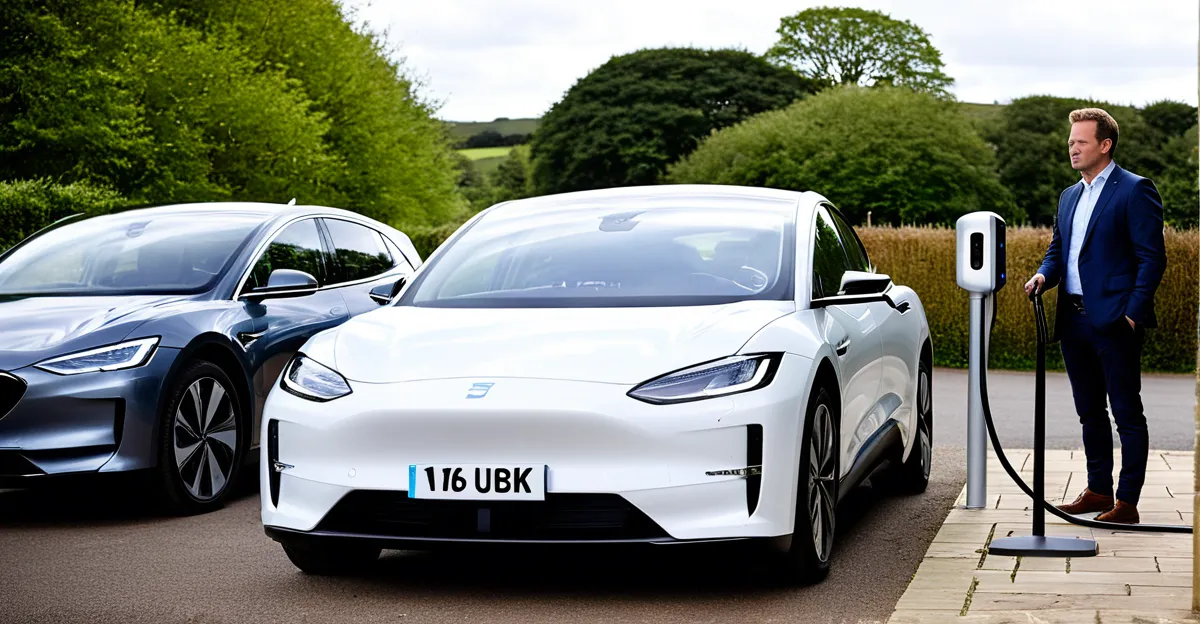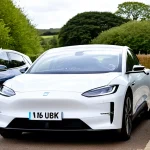Current landscape of electric vehicle adoption in the UK
The electric vehicle adoption UK landscape has seen substantial growth in recent years. Current EV market data highlights a consistent rise in ownership rates, with the UK experiencing an accelerating trend toward electric cars. According to recent EV statistics UK, registrations of electric vehicles have surged, driven by increasing consumer interest and government support.
A significant demographic pattern emerges, with higher EV adoption concentrated in urban centers where charging infrastructure is more developed. Conversely, rural areas exhibit slower uptake due to limited access to rapid charging stations. This geographic disparity influences overall market dynamics and adoption rates. The trend reflects a wider recognition among UK drivers of the benefits of EVs, including reduced emissions and lower running costs.
This might interest you : Why Are UK Automakers Investing in Renewable Energy?
The growth trajectory of electric vehicle adoption UK is supported by evolving consumer preferences, with younger age groups and environmentally conscious buyers leading the charge. This shift signals a gradual but firm move toward widespread electric mobility across the country.
In summary, the current EV market in the UK is marked by a robust increase in electric vehicle ownership, shaped by geographic and demographic factors that define the adoption patterns. Continuous monitoring of EV statistics UK provides insight into how these trends will influence future market developments.
Also read : How Can the UK Automotive Industry Adapt to Future Technological Innovations?
Government policies and incentives shaping future adoption
Government policies play a pivotal role in accelerating electric vehicle adoption UK by creating a supportive environment. The UK government EV policy encompasses a range of initiatives designed to encourage consumers and businesses to transition to electric cars. Central to these efforts are electric car incentives, which include financial grants for new EV purchases, reduced road taxes, and exemptions from congestion charges in certain cities.
A key question is what specific financial incentives are currently available to EV buyers? The UK offers a plug-in car grant that reduces the upfront cost of eligible vehicles. Additionally, local authorities often provide incentives such as free parking or discounted charging rates. These incentives collectively lower the initial barrier to entry, making EV ownership more accessible.
Beyond buyer-focused incentives, the government has introduced stricter UK EV regulations targeting the reduction of internal combustion engine vehicles. Upcoming bans on the sale of new petrol and diesel cars, set for the mid-2030s, underscore a strong regulatory push toward full electrification. This regulatory timeline motivates both manufacturers and consumers to adopt electric vehicles sooner.
Regional policies also complement national efforts, with some local councils implementing additional incentives to further stimulate demand. Together, these measures form an integrated framework that actively shapes the future trajectory of electric vehicle adoption across the UK.
Infrastructure developments and challenges
The expansion of EV charging infrastructure UK is critical to supporting the ongoing rise in electric vehicle adoption UK. Recent efforts have focused on increasing the availability of both public and private charging points. The proliferation of rapid charging stations has been a particular area of emphasis, as these facilities significantly reduce charging times and alleviate range anxiety—a key EV adoption challenge UK.
Despite this progress, the scalability of infrastructure remains a pressing issue. Many urban centers boast a dense network of chargers, facilitating convenience for city dwellers. However, rural locations continue to experience sparse coverage, limiting EV uptake outside metropolitan areas. This urban-rural divide highlights the importance of targeted infrastructure investments to balance accessibility.
Innovations such as smart charging and vehicle-to-grid technologies are emerging to enhance the efficiency and capacity of the charging network. These advancements promise to improve UK EV readiness by enabling dynamic management of energy demand and supply. Still, the integration of such technologies requires coordinated efforts among government bodies, private enterprises, and utility providers.
Overall, while substantial strides have been made to grow the UK’s EV infrastructure, overcoming geographic disparities and ensuring reliable, fast charging options remain vital to sustaining the momentum in electric vehicle adoption.
Market forecasts and industry perspectives
The EV market forecast UK projects robust growth, with electric vehicle sales expected to rise significantly in both the short and long term. Industry expert insights underline a transition driven by improving vehicle affordability, expanded charging infrastructure, and strengthened government policies. Analysts predict that electric cars will represent an increasingly dominant share of new vehicle registrations over the next decade.
What factors are shaping the future of electric vehicles in the UK? Primarily, automakers’ commitments to electrify their fleets are pivotal. Major manufacturers are investing heavily in new EV models and battery technologies, anticipating stricter emissions standards and shifting consumer preferences. Technology companies complement this by developing advanced battery systems and software to enhance vehicle performance and user experience.
Industry perspectives emphasize that this momentum relies not only on product availability but also on integrating EVs into the wider energy ecosystem. The collaboration between carmakers, energy providers, and policymakers is critical to ensuring seamless adoption. As a result, the future of electric vehicles in the UK appears promising, with continued expansion expected to reshape the automotive market fundamentally while supporting environmental goals.







